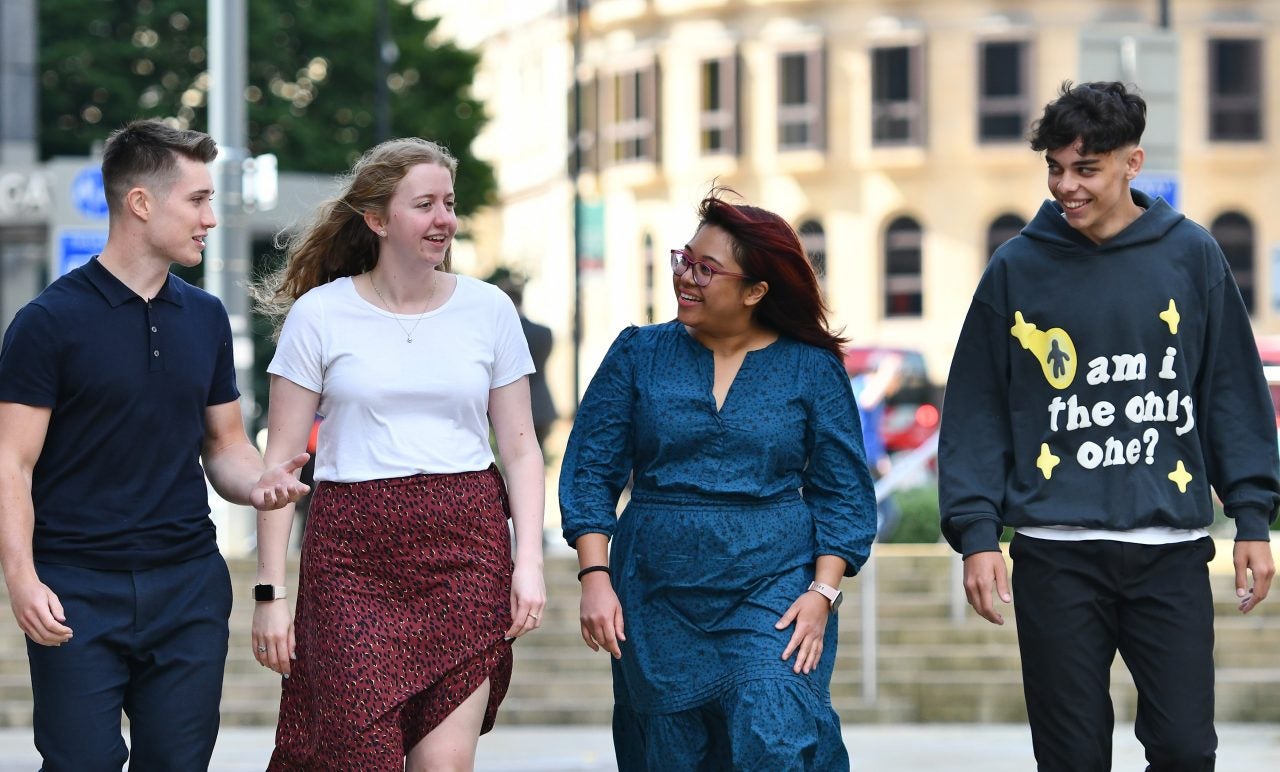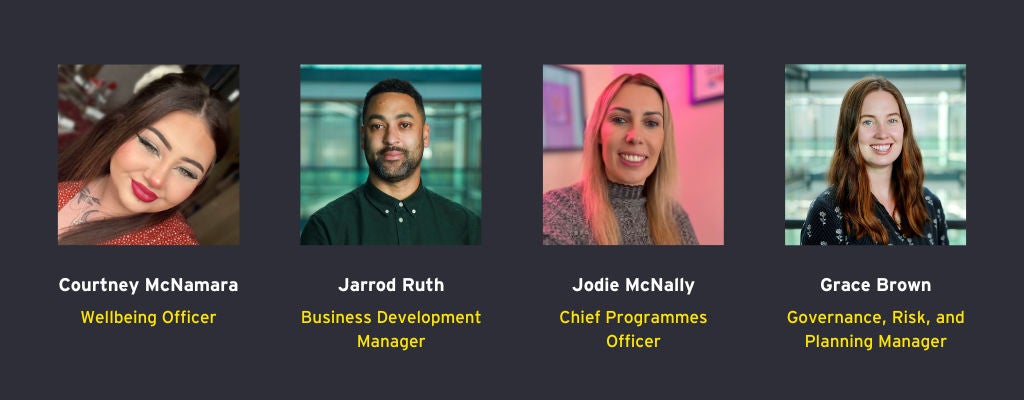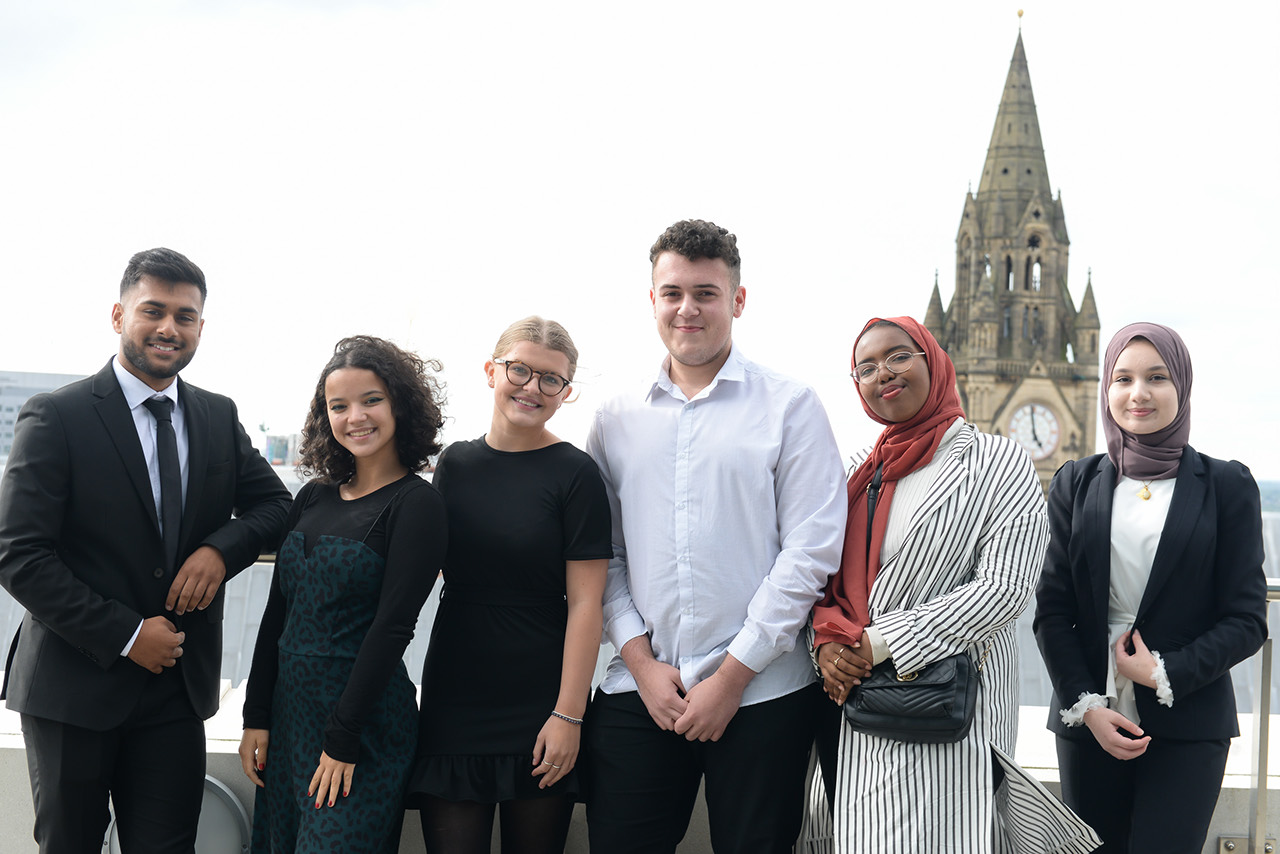The EY Foundation is a charitable company registered in England and Wales and Scotland with registered charity number 1157154 and SC045076. It is also a member firm of Ernst & Young Global Limited

Hear from a variety of professionals in the charity sector about their career journey and the skills they’ve developed along the way.

Courtney McNamara, Wellbeing Officer at The Sapphire Employability and Wellbeing Academy
During Covid I had to leave my job, which I always thought I would do forever as a farmer, but due to the pandemic we took a large financial hit. I was able to join an employability skills course online and as a requirement, I needed to do an internship, which is where I had the opportunity to do admin work with The Sapphire community group! Once I completed the internship, Jasmine, our CEO, offered me a job as an apprentice which enabled me to complete my business administration course landing me my incredible role as a Wellbeing Officer!
When joining Sapphire, I never planned on doing the job I am doing now, but Sapphire welcomed me with open arms and helped me learn and grow as an individual and now, I am able to do the same for new employees and the community. I wouldn't change it for the world.
Jarrod Ruth, Business Development Manager at the EY Foundation
I have always had an inbuilt desire to give back and joining a role in the charity sector aligns with my personal values of helping others. If you look through my career, many of my roles have been commercial, but they have also given back in some way. The thought that the work I would be doing could bring meaningful change was a huge pull in me deciding to work in the charity sector. We do a lot of work with unrepresented communities, something I know very well, and being able to help someone, somehow is a huge motivating factor for me.
The Charity sector is way more fast paced than many would realise and being flexible and adjusting quickly to the challenges the sector can pose is really important. There are last minute bids and projects that require me to change focus very quickly, something I have had to work hard on. Relationship building in the charity sector is imperative too. I am always looking to link in with different networks, groups and bodies inside and outside of the charity to help achieve our goals.
Jodie McNally, Chief Programmes Officer at the EY Foundation
I’d always been involved with the charity sector from a young age – it started off as volunteering but then progressed onto contract work during college/uni. I actually went on to be a journalist after uni but soon realised that purpose was the most important thing for me, so I took a quick decision to change direction and move into the charity sector where I’ve stayed ever since!
There is always a lot of talk about soft skills and people can be quite dismissive of their importance, but for me mastering them is actually pretty tricky and very much a life-long journey. But once you’ve started to develop key soft skills like collaboration and communication, then they’re a great platform to build other competencies and technical skills on. It’s this combination that has helped me progress in my career.
Grace Brown, Governance, Risk, and Planning Manager at the EY Foundation
I started my career working in the Houses of Parliament, fully expecting to progress up the ladder, becoming a SPAD then Chief of Staff. It was a fast-paced environment and one that meant no two days were the same. My area of focus was mainly in international development and I worked alongside the charity sector for a time. I started to appreciate the impact pressure coming from outside of political institutions could have to affect change and support people.
I came by my current job as, during the pandemic, I was angered by the widening gap of inequality and challenges of social mobility within the U.K. and felt a need to change my area of focus from international development to domestic policy. I was able to use the strong communication and interpersonal skills I developed while in Parliament to demonstrate my abilities in stakeholder management and leverage my understanding of charity processes and procedures to show my capacity for learning and development. And most importantly, I was able to use that personal desire to help young people in the U.K. gain equitable opportunities to show my commitment to the role and alignment to the goals of the organisation.


